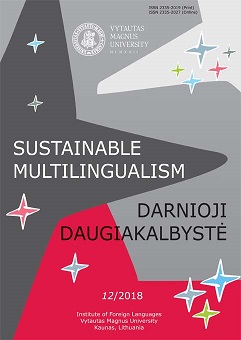Thorns and flowers of teaching English literary criticism to the speakers of Persian as a globally less widely taught language: a case of MA students of translation studies in Iran
Thorns and flowers of teaching English literary criticism to the speakers of Persian as a globally less widely taught language: a case of MA students of translation studies in Iran
Author(s): Samad Mirza SuzaniSubject(s): Pragmatics, Sociolinguistics, Higher Education , Translation Studies
Published by: Vytauto Didžiojo Universitetas
Keywords: EFL context; Iranian graduate programs; literary criticism; MA students; Persian; translation studies (TS);
Summary/Abstract: The main aim of this study is to probe into major impediments in teaching literary criticism to the Persian speaking Iranian students of translation studies and to argue in which ways teaching literary criticism may be a successful undertaking in the educational establishments in globally less widely taught and learnt languages like Persian. For this purpose, following a mandatory literary criticism course, 35 male and 65 female graduate students from Fars and Isfahan universities were selected through convenience sampling and encouraged to fill in "record-of-work" forms, including reflection on learning strategies as well as their personal experiences and impressions. Next, to triangulate the results, fifty participants were selected to partake in semi-structured interviews, and findings were sorted and content analyzed based on Oxford’s (1990) dimensions of Strategy Inventory for Language Learning (SILL) and the tenets of grounded theory. It was revealed that there exist major defects with the current socio-pragmatic and pedagogical status of teaching literary criticism to the Iranian MA students and educational gaps are typically ascribed to the learners’ cultural conditions in Iranian EFL context. Results can hopefully provide EFL teachers with ways to recover defects in teaching literary criticism in less widely taught and learnt languages and provide learners with immediate feedback to meet cultural requirements in doing literary criticism.
Journal: Darnioji daugiakalbystė
- Issue Year: 2018
- Issue No: 12
- Page Range: 202-224
- Page Count: 23
- Language: English

